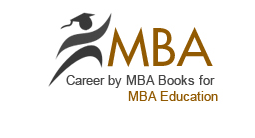Principles of writing letters can make our letters effective. There are some principles of writing effective letters:
Courtesy and Consideration:
The basis of any relationship is built on the strong edifice of feelings for others. Courtesy is like the oil which removes the friction, it makes life smooth and helps win friends. It softens the sting of an unpleasant piece of information, creates goodwill, and produces a favourable response. Look at the following sentences that help you word your business letter in a polite manner.
Many thanks for your letter of…
Thank you very much for your letter of…
We are glad to note that you are now in a position to pay our bill.
We appreciate your writing to us so promptly.
Conciseness: While writing a business letter it is important that your letter be concise and direct. Avoid old fashioned, stuffy phrases and long winded sentences associated with classic formal letter writing. In the present times, people are very busy and will be easily irritated to read unnecessarily lengthy letters. So you should focus directly on the message to be told. Express your idea in straightforward, plan English.
Clarity and Precision: Whenever you write a letter, be clear about what you want to say and say it clearly. Use short, simple words and language to relate whatever you want to tell in the letter. Use concrete words – two words in English will have similar meaning – in such cases, use the word which is commonly understand. E. g.: if you use the word ‘house’ and it conveys the meaning that you intend, don’t use the word ‘residence’ which will make the message more complicated. Avoid long winded sentences. Spare your reader the tedious task of understanding your letter and try to make smaller sentences.
To make your letter clear, break it into different paragraphs when you have to discuss more than one main point. Finally, you have to understand that writing a good business letter involves a lot of practice which will gradually enable you to be an effective writer.
The theory has been taken from MB0023 (Business Communication) book of SMU MBA. Principles of writing letter are written in the sequence of Business letter writing practices.
Courtesy and Consideration:
The basis of any relationship is built on the strong edifice of feelings for others. Courtesy is like the oil which removes the friction, it makes life smooth and helps win friends. It softens the sting of an unpleasant piece of information, creates goodwill, and produces a favourable response. Look at the following sentences that help you word your business letter in a polite manner.
Many thanks for your letter of…
Thank you very much for your letter of…
We are glad to note that you are now in a position to pay our bill.
We appreciate your writing to us so promptly.
Conciseness: While writing a business letter it is important that your letter be concise and direct. Avoid old fashioned, stuffy phrases and long winded sentences associated with classic formal letter writing. In the present times, people are very busy and will be easily irritated to read unnecessarily lengthy letters. So you should focus directly on the message to be told. Express your idea in straightforward, plan English.
Clarity and Precision: Whenever you write a letter, be clear about what you want to say and say it clearly. Use short, simple words and language to relate whatever you want to tell in the letter. Use concrete words – two words in English will have similar meaning – in such cases, use the word which is commonly understand. E. g.: if you use the word ‘house’ and it conveys the meaning that you intend, don’t use the word ‘residence’ which will make the message more complicated. Avoid long winded sentences. Spare your reader the tedious task of understanding your letter and try to make smaller sentences.
To make your letter clear, break it into different paragraphs when you have to discuss more than one main point. Finally, you have to understand that writing a good business letter involves a lot of practice which will gradually enable you to be an effective writer.
The theory has been taken from MB0023 (Business Communication) book of SMU MBA. Principles of writing letter are written in the sequence of Business letter writing practices.
